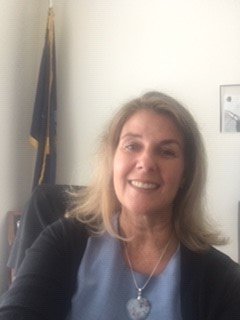BY DEAN MOSES
Schneps Media is sitting down with judges across the city’s court systems to discuss their roles and how they’ve changed in the age of COVID-19. This week’s interview is with Judge Tracy A. Catapano-Fox, Queens County Civil Court Supervising Judge
Schneps Media: Could you describe your duties as a supervising judge?
Hon. Tracy A. Catapano-Fox: I am a supervising judge of Queens Civil Court. My job is overseeing the operations and administrations. Our cases are housing cases and civil cases. We have been incredibly active since the pandemic began, even though we had to switch to a mostly virtual process.
SM: How has the position/proceedings changed during the pandemic?
TCF: All the cases involving two attorneys are actively proceeding through virtual conferences. In July, I’ve done two virtual trials since the pandemic began. I have more trials scheduled for next week and the coming weeks that we are doing virtually. It’s more time consuming. You take for granted how much you can accomplish when you have an entire courthouse filled with people. Everyone is there working together and we’re able to resolve things. We have had over 13,000 conferences since April virtually. We have been really working hard here to keep things moving as much as humanly possible. But it’s much harder online.
SM: Is there a silver lining that you can find from the pandemic?
TCF: We’ve been able to get to know each other better than in the court because of the volume. You really don’t have a lot of time to speak to everyone because you were running from courthouse to courthouse, and trial to trial. Now, doing it online, there is this sense of trying to connect with each other.
SM: Are there more technical advancements that have been implemented since the pandemic?
TCF: Chief Judge Janet Marie DiFiore, head of New York courts, has been phenomenal in getting our IT department to really bring us into the 21st century. We started off using Skype and now we are using Microsoft Teams to be able to do our trials. Judge Anthony Cannataro is our administrative judge for the Civil Court, and he has been there every day helping. Judge George Silver, who is the deputy chief administrative judge for all of New York courts is someone who wants to make things work. It’s been exciting to work for people who are all about passion for the courts.
SM: Have the technical advancements made the workload more seamless?
TCF: The calendars that I am doing now are longer, but we are getting more work done. I had a 12 p.m. conference with 300 cases. We did it from 12 p.m. to 1:15 p.m. We just ran through it because it’s all online. No one is talking unless you have to. We could never do that in the courtroom. We have managed to increase our calendar capacity because of the virtual nature. However, today I have to do a daily activity report for the 300 cases I conferenced that will take about two hours. Now, there are more steps involved since we are not together.
SM: What are some of the most common cases you deal with at work?
TCF: One of my favorite parts of my job is doing name changes. On any given month I will sign about 200 name changes for people. Sometimes it’s minor things because they need to have their birth certificates corrected to fit their Social Security card. But then we have a tremendous number of transgender people, particularly younger people, who are trying to find themselves and assert who they are in this world. So, part of my job is to help them change their names to something that they believe really and properly demonstrates their person, and I love that part of my job. I feel like I am helping people.
A lot of the trial work we do is great, but that is not at all a big part of what we do. There is so much we do behind the scenes with helping people and helping people find justice. It gives me the chills when I do it. That’s why I wanted to be a judge to try to help people and to do justice in this world.
There are also women who are domestic violence victims and no longer want to carry their husband’s name. That’s such a powerful thing for them. You never really think about it when you hear name change, but it is such an important part.
SM: What prompted you to follow a career in law?
TCF: I really do love the law. I love the fact that you can learn the law and use it to help people. It is just such a sad time for us since we lost Justice Ruth Bader Ginsburg because that was a woman who spent her entire life working to making things better for everyone, not just women. Those are the type of people that I admire, and it makes me want to do better with the law. It makes me want to be a better judge. I met Justice Ginsburg in 2004, I think we were fortunate to have her for so many years on the bench and she is an example for all of us.
SM: Are there some hobbies or pastimes you enjoy partaking in during your free time?
TCF: My youngest son has been my personal trainer since the pandemic. When he was younger, he was diagnosed with autism. Now, he is considered amazingly medically recovered. In 2009 I started running marathons. I ran five marathons every year for Autism Speaks. I haven’t been running as much because of the pandemic and work, so Ethan [my son] said, “I’m going to train you.” We are doing a Batman/DC Comic 5K virtual run.































